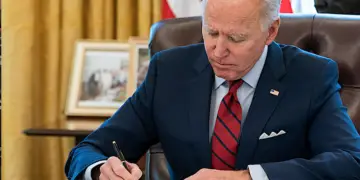The American public has apparently decided that the whole notion of peak oil and the end of the oil age is just too horrific to even contemplate and so the drive to use up as much finite fossil fuel as possible is still the order of the day.
In the summer of 2006, however, a group of people in the town of Totnes in the United Kingdom set about establishing what has now become the Transition Movement.
The people of Totnes apparently came to accept the inevitability of the end of the oil age and set about planning how to reduce the use of petroleum products in their community while transitioning toward renewable energy sources and a sustainable community.
Only four years later there are about 80 officially designated Transition Towns throughout countries in the former British Empire. Transition Boulder County in Colorado has now become the first Transition Initiative in North America.
There are some 700 additional communities that are in various stages of becoming Transition Towns or are contemplating whether they are ready for this journey. Transition Westchester has been in operation for more than a year under the direction of John Bell.
Business opportunities
If this whole topic sounds a bit “New Agey” to the business community bear in mind that in every movement there are business opportunities and the Transition Movement is no exception.
To illustrate, Transition U.S. recognizes:
We used immense amounts of creativity, ingenuity and adaptability on the way up the energy slope and there”™s no reason for us not to do the same on the down-slope.
If we collectively plan and act early enough there”™s every likelihood that we can create a way of living that”™s significantly more connected, more vibrant and more in touch with our environment than the oil-addicted treadmill we find ourselves on today.
The end goal is to launch a community defined, community implemented “Energy Descent Action Plan.”
Here are the key assumptions in the Transition Model: 1. Life with dramatically lower energy consumption is inevitable and it is better to plan for it than to be taken by surprise; 2. Our communities currently lack resilience; 3. We have to act collectively and we have to act now; 4. By unleashing the collective genius of our communities it is possible to design new ways of living that are more nourishing, fulfilling and ecologically sustainable.
Reality check
“Small is Beautiful” by B.F. Schumacher, an economist in the UK who anticipated the need for the Transition Movement 37 years ago, is astounding in its timeliness for where we are today. Some pithy quotes regarding fossil fuels: “We are treating them as income items, although they are undeniably capital items.” Can you imagine how much of that invaluable capital has been burned through in 37 years?
Further ”“ “We are estranged from reality and inclined to treat as valueless anything that we have not made ourselves.” Schumacher goes on with an apt quote from Ghandi ”“ “Earth provides enough to satisfy every man”™s need but not every man”™s greed.”
More recently Raj Patel, in his ground-breaking book “The Value of Nothing: How to Reshape Market Society and Redefine Democracy,” further develops this theme: “Preserving the knowledge about how to value natural resources can mean the difference between sustainability and extinction.”
A reality check: For every four barrels of oil used today, only one barrel of new oil is discovered, meaning we are already approaching what is known as “peak oil.”
The core theme in the Transition Movement is really quite basic.
The much-vaunted American individualism must give way to the clear need to work collectively in order to develop interdependent units that can weather severe turbulence by developing localized food sources, sustainable energy sources, resilient local economies and an enlivened sense of community well-being.
Surviving the Future explores a wide range of subjects to assist businesses in adapting to a new energy age. Maureen Morgan, a transit advocate, is on the board of Federated Conservationists of Westchester. Reach her at maureenmorgan10@verizon.net.















